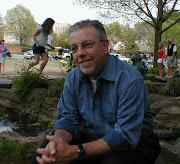"Arise, shine; for your light has come, and the glory of the Lord has risen upon you." (Isaiah 60:1, NRSV)
Isaiah spoke to the Israelites as they returned from exile to find their beloved Jerusalem in ruins. The message was one of light, hope, and abundance. Isaiah called the people to remain faithful to God and reminded them that, "the Lord will arise upon you, and his glory will appear over you."
As we move into 2010, we also need to hear a word of hope. The season of Christmas brought us once again to the angels' declaration of, "peace on earth and good will to all humanity." In spite of this, we live in a world torn apart by war while we cry out for peace. While our personal circumstances may be comfortable, we are surrounded by men, women, and children who are hungry, homeless, and without hope. Though many of us celebrated the season of light this Christmas, there are many others sitting in the darkness of grief, sorrow, and great loss.
Many years ago I found myself in a very dark place covered in sadness and hopelessness. I had given up on God's plan and descended into a place where God could not find me. Family and friends could not reach me in this place, but they kept praying and loving me until God's light found its way into my darkness and hope returned to lead me home. I believe this is what Isaiah is doing…he is affirming God's promise to a people lost in darkness. He says to them, and to us, "Don't give up hope. Just because you can't see the light doesn't mean it's not there. Keep praying, trusting, and reaching toward the light of God's love."
In a recent Sunday school class discussion, we talked about how we have only a limited view of what God sees completely. The meaning of events in our lives cannot be completely understood until God's work is completed. What we may view as injustice, disaster, or tragedy should remind us that people of faith trust that the Lord's work is not yet complete. We wait for its fulfillment. In other words, we may bring lemons to the party, but God will eventually make lemonade. No matter what, there is always hope for a future filled with the bright Light of God.
I realize that this view of the world may offer small comfort when we are in the midst of our own grief; in fact, this may offer little immediate relief for our sadness or anesthetic for our pain. But, our Christian view of God who is still present – Emmanuel, God with us – and still in control can bring us to gradual acceptance of the fact that we cannot see the whole picture. It can help us to release our hopelessness into the hands of our God of hope.
Frank Johnson writes, "God does not cause hurt or will the suffering of innocent persons. But, when these events occur they must be understood within the larger framework of our lives. God can turn sorrow into joy, defeat into victory, and death into life. Faith in God involves patience, trust, and confidence that God will prevail."
Today I pray that we will begin the year filled with hope, confident in God's abundance, and looking to His Light. We cannot see what the future holds, nor should we try to speculate; what we can rely on is a God who knows exactly how things will work out for us. One of my favorite scriptures is Jeremiah 29:11 – "For surely I know the plans I have for you, says the Lord, plans for your welfare and not for harm, to give you a future with hope." This is a certainty – "surely" – God has a plan for the welfare of each one of his children; a future of hope, not harm. Wow! Every time I call on that passage I am overwhelmed with wonder at the awesomeness of the God who loves me that much. With the certainty of that promise, I have no worries about what the future holds. This is the way I choose to greet January 2010 – with the sure and certain hope that God's plans are perfect. It doesn't matter that we don't see everything that God sees; we trust that God's vision is better than ours. "Arise, shine; for your light has come, and the glory of the Lord has risen upon you." Isaiah was right to offer this message of hope. It is a message for a Happy New Year for Christians everywhere!
God bless,
Pastor Don





